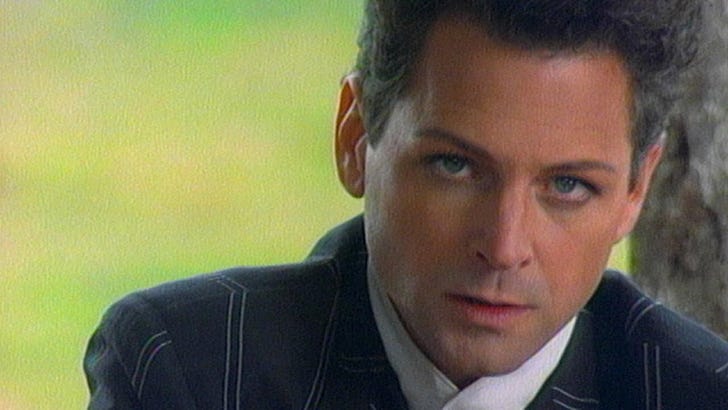Fleetwood Mac had an incredible career run during the 70s, especially the album Rumors with Gold Dust Woman, Don’t Stop, and a few other iconic hits. However, they took a pretty big dip during the 80s as band members decided to go their own ways.
A reunion in 1987 produced the album Tango in the Night, which turned out to be a huge commercial success for the band. It didn’t have as many memorable songs as their earlier works, and Stevie Nicks’s presence on the album was muted since she was working on her own solo album at the time.
Nevertheless, there was one really big hit from this album that I listened to as a kid, which became my main introduction to the band. It was called Little Lies, and it includes a memorable repeating chorus:
Tell me lies, tell me sweet little lies
Oh, no, no, you can’t disguise
Sweet little lies! What ever could this line mean?
This got me asking a question, first in my mind, and then with my fingers: what sorts of lies might be considered sweet?
This is a sticky question. I tend to view my own ability to discern what’s true from what’s not as my most important skill, one that I’ve dedicated much of my life to mastering.
Remember, our sensory inputs are all we have coming in from the outside world. This means that getting misinformation out of the way—seeing what’s truly there—is the first step in understanding anything at a genuine level. Without this, we don’t understand anything at all.
Even still, are there situations where misleading someone can be ethical and moral? Can it be helpful?
Can a lie be sweet?
I’m still not sure. Let me show you why by way of some examples.
Imagine a soldier in a trench during World War I. His mind is starting to break. He’s been in that damned trench for what feels like decades, and there’s no way to get comfortable here.
At the same time, you really don’t want to get too comfortable, because that’s how you die here. His feet are rotting because of the standing water that’s always at the bottom of the trench, but we really need him to stay there and keep doing this job.
If this guy stops doing his job, we will be overrun and conquered by terrible overlords. Is it okay to tell him everything’s going to be okay, even if you think it’s not?
In that moment, it will offer the soldier hope, and may even keep his mental demons at bay for a bit longer… but is it sweet? Is it justifiable?
This is often also called a white lie, indicating that it’s less harmful, and probably designed to be said with good intentions for the person being told the lie.
How about the kid being told that Santa Claus is out there watching their every action? The short term result might be better behavior, but is there any damage being done when you don’t differentiate between fantasy and reality with children, who are learning how to tell this very difference?
I’m not here to judge, just to think with you today. If you’re a parent, did you tell your kids about Santa? When you were a kid, were you told this story or similar ones?
Flattery, too, has a nice short-term boost. Instead of hurting someone’s feelings, you can lift their spirits by telling them a sweet little lie about how they look. I can see how long term harm could be done under some circumstances, especially by consistently ignoring a negative attribute that might be addressed in some ways.
However, I can also see how this one might not be so harmful after all, especially if the person being flattered knows they’re being lied to. That’s the thing, though, isn’t it? If you know you’re being lied to and so does the other person, are you actually being lied to?
If your parents tell you to behave since Santa is coming as you both wink at one another, is that really a lie?
How about a head of state who steps up at the moment of crisis, only to tell people that things are actually going all right? This is surely a lie told with good intentions—to keep a state of order so that things don’t get even worse—but in order to keep order, sometimes a little lie can be told.
Maybe the people and the politician are actually winking at one another like the kid with their parents, but maybe not. If the population at large is deceived into remaining calmer so that panic does not ensue and the greater good prevails, can a lie like that be justified?
This is probably the thorniest question of all, at least as pertaining to sweet little lies. On the one hand, this can easily be manipulated by politicians who seek to control their population through lies. This is straight out of the dictator’s playbook.
On the other hand, a politician who chooses to tell the people the unvarnished truth might end up making the situation dramatically worse, especially if panic ensues.
That’s because the unvarnished truth can be very complicated. It can be nuanced, and very difficult to understand in its totality. You can quite easily Dunning-Kruger the truth, meaning you can believe confidently that you understand a geopolitical situation, only to discover much later that your idea about strategy would have had the exact opposite effect.
If someone asks me what I do for a living, I have gotten into the habit of asking them how much time they have for the conversation. That’s because I’m not really interested in telling any little lies, sweet or otherwise, and because it’s not some cookie-cutter answer.
Similarly, if someone wants do discuss my views on major issues of the day, I’m generally quite happy to do that in a one-on-one setting, where each person gets a chance to share their views. However, if someone asks me what I think of capitalism or socialism, or about the nature of reality and existence, or which government is best, I’m going to need a lot more context first… and a lot of time for conversation and clarity.
I tend to avoid answering with lies whenever possible, but there might be times when an answer is required, and a little lie might be justified in order to avoid creating a great deal more confusion, especially if the scenario you’re talking about is sufficiently complicated, but do the ends justify the means here?
Let me know what you think by commenting. And, if you’ve found yourself telling sweet little lies at various times, please feel free to share what they are!
.






Lies are an interesting quandary. If we make a lie a binary against absolutly truth then it still becomes messy. Religion is a great example. It's not the TRUTH but it contains thousands of truths. Further typically the issue with Christianity in particular is they took a set of myths and then tried to force them to be TRUTH.
I'm drafting an essay now about the truth of myths and I found this quote that helps bring this quandary into focus:
"Myth is the exact opposite of something that is untrue; actually, it is something that is so true, it is ever and always, irrepressible bubbling up from the soil of every alphabet, every language, every time, every culture." - Stan Mitchell
Absolute truth is, in many ways, a siren call that can't be obtained. Instead, functional lies that drive improved outcomes work better than truth.
Finding out Santa wasn’t real was one of the biggest disappointments of my childhood. I remember the neighborhood boys down the street that I played with as a child were told Santa wasn’t real and it was a celebration of Jesus’ birthday, and I decided that was the better way to go. But with my own children, my husband at the time was insistent that we not deny them the joy of Christmas by telling them Santa wasn’t real, so I went along with it, and my kids believed longer than most. They didn’t have the same scarring over it as I did, but if I had to do it again, I wouldn’t.